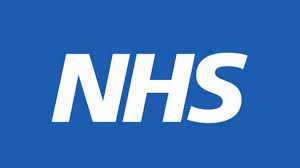- 11 Dec 2023
- 3 Minutes to read
- Print
- PDF
Post breast cancer
- Updated on 11 Dec 2023
- 3 Minutes to read
- Print
- PDF
For women with a history of breast cancer, non-hormonal treatments should be offered first line.
If non-hormonal vaginal treatments have been unsuccessful, vaginal oestrogen can be considered after an informed decision-making and consent process.
INFORMED DECISION MAKING AND CONSENT PROCESS
NICE says when assessing the safety of vaginal oestrogen in relation to breast cancer recurrence, consider:
- The uncertainty about risks of breast cancer recurrence.
- Their general risk factors for breast cancer recurrence.
- The hormone receptor status of their breast cancer.
- The fact that vaginal oestrogen is absorbed, but the amount is small compared with systemic HRT.
- The type of adjuvant treatment they are taking, if any.
Some people have lower recurrence risk than others. For example, those with lymph node negative breast cancer or smaller and lower grade tumours would have a lower risk of recurrence than those who have lymph node positive breast cancer with tumours that are T2 or greater and higher grade.
AVAILABLE STUDIES
- Patients can be informed that with long-term use, licensed doses of vaginal oestrogen are associated with very low systemic absorption.
- Observational studies have been reassuring. However, there remains a lack of good quality data to make any definitive conclusions about the safety of vaginal oestrogen after breast cancer.
- NICE says that uncertainties should be included in the discussions with people.
ADJUVANT TREATMENTS
- NICE advises that for people taking adjuvant treatments (such as aromatase inhibitors or tamoxifen) decisions about vaginal oestrogen should be made in discussion with an Oncology specialist because such decisions are complex and depend on various factors.
- NICE says use of a vaginal oestrogen may lessen the efficacy of aromatase inhibitors. So, decisions could include the option of switching adjuvant treatment from aromatase inhibitors to tamoxifen.
- The mechanism of action of aromatase inhibitors makes genitourinary symptoms likely, whereas the mechanism of action of tamoxifen is less likely to cause genitourinary symptoms.
VAGINAL DHEA (INTRAROSA)
The safety of vaginal preparations containing DHEA in breast cancer survivors is not known.
OSPEMIFENE
Ospemifene is contraindicated in women undergoing active treatment for breast cancer.
If vaginal oestrogen is started, consideration should be given to prescribing an ultra-low dose estriol preparation such as Imvaggis. Estriol is a less potent oestrogen compared to estradiol, has a short circulatory half-life and displays preferential affinity to urogenital receptors rather than breast receptors.
- Agrawal P, Singh S, Able C et al. Safety of vaginal estrogen therapy for genitourinary syndrome of menopause in women with a history of breast cancer. Gynecology: Original research. 2023.
- National Institute for Health and Care Excellence. Guideline. Menopause (update). Draft for consultation, Nov 2023.
- Hirschberg A, Bitzer J, Cano A et al. Topical estrogens and non-hormonal preparations for post-menopausal vulvovaginal atrophy: an EMAS clinical guideline. Maturitas. 2021.
- Pavlovic R, Jankovic S, Milovanovic J et al. The Safety of Local Hormonal Treatment for Vulvovaginal Atrophy in Women With Estrogen Receptor-positive Breast Cancer Who Are on Adjuvant Aromatase Inhibitor Therapy: Meta-analysis.Clinical breast cancer. 2019
- Hamoda H, Panay N, Pedder H et al. The British Menopause Society & Women’s Health Concern 2020 recommendations on hormone replacement therapy in menopausal women. Post Reprod Health. 2020. Found on page 192.
- Hirschberg A, Sanchez-Rovira P, Presa-Lorite J et al. Efficacy and safety of ultra-low dose 0.005% estriol vaginal gel for the treatment of vulvovaginal atrophy in postmenopausal women with early breast cancer treated with nonsteroidal aromatase inhibitors: a phase II, randomized, double-blind, placebo-controlled trial. Menopause. 2020.
- Santen R, Mirkin S, Bernick B et al. Systemic estradiol levels with low-dose vaginal estrogens. Menopause. 2020.
- Santen R, Pinkerton J, Liu J et al. Symposium report. Workshop on normal reference ranges for estradiol in post-menopausal women. Menopause. 2019. Found on page 618.

